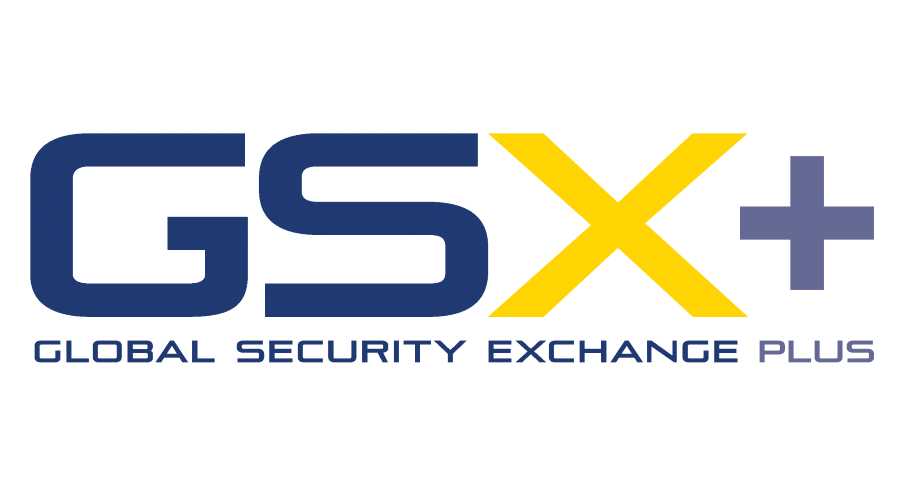ASIS International wrapped up its annual conference virtually last week. The virtual experience, branded GSX+, replaced the annual Global Security Exchange (GSX) event that was due to take place the same week in Atlanta. The show had more than 4,500 registrants from 82 countries with 88 exhibitors presenting at the virtual marketplace.
“GSX+ was a bold, positive statement to the world that the professional security industry is committed to learning, sharing experiences and information, and building strong interpersonal relationships across borders, time zones and distances,” said Godfried Hendriks, 2020 ASIS president. “I am delighted by the energy and enthusiasm of the ASIS membership and the security community at large, and I am already looking forward to GSX 2021, planned to take place in Orlando, which will combine the best of this virtual experience and our traditional live event.”
The conference kicked off Monday with a general session presentation by Juan Manuel Santos, two-term president of Colombia and recipient of the 2016 Nobel Peace Prize.
In the session, he took a global perspective on leadership and security during this tumultuous time, telling leaders they must “be careful during this time to not use history and past experiences to extrapolate or predict the future because we are navigating in unchartered waters. There is no precedent for what we are going through.”
The week featured keynotes from by Keren Elazari, security analyst, researcher and public speaker; General Stanley McChrystal, 4-star general and former commander of U.S. and international forces in Afghanistan; and Ilham Kadri, CEO and president of the executive committee at Solvay and Werner Cooreman, and group security director at Solvay, a materials, chemical and solutions company
Additionally, GSX+ included more than 130 scheduled and on-demand sessions across five tracks: national security; physical and operational security; risk management; digital transformation/information security; and leadership and managing within organizations, along with networking and a virtual marketplace. All-Access attendees can earn up to 25 CPEs and will be able to access education sessions through Dec. 31.
In one session, “The GSOC of the Future: What’s Next?” a panel of experts discussed the new technologies that are impacting GSOCs. A major part of the conversation was how many GSOCs had gone remote since the start of the pandemic, and how that capability will be even more important in the future.
“Some clients have gone totally remote with GSOCs, others have locked it down to just the core staff, and others have increased the footprint of their GSOC by expanding the space in which they work,” said Dan Gundry, director of sales and marketing at Vistacom Control Room Solutions, during the session.
Another interesting session on “Security 2030 and Beyond” also examined how security operations will change in the new normal we are facing. Artificial intelligence, facial recognition, drones, 3D and 4D printing, and autonomous vehicles were just some of the emerging technologies discussed. Privacy issues that will continue to affect the security space were also a topic.
Diversity was a hot topic, both in sessions and social events. In a session called “Diversity, Equity and Inclusion — Strategic Imperatives for Success,” the panel discussed what organizations and security professionals can do to influence change and support a robust diversity, equity and inclusion policy.
Panelist Iskandar Jefferies, branch manager of Bidvest Noonan, said having this kind of conversation is the start of that change.
“We have to start somewhere, so let’s start here,” he said.
During “Women in Security: Overcoming Barriers to Success,” Jennifer Hesterman, vice president of education services at Watermark Risk Management International, gave advice to women in security that included finding a mentor and how to manage in a demanding career field.
“Don’t apologize for protecting your time,” she said.
One of the things in-person trade shows do best is promote networking and socializing, and ASIS aimed to do this virtually within the format. To that end, GSX+ featured a variety of “happy hours,” including a rocking welcome musical jam session, a very well-attended event the next day for Women in Security and Young Professionals; and the President’s Reception on Thursday night hosted by Marco Vega, ASIS Member and senior regional vice president, and featuring Jon Taffer, business management expert and host of “Bar Rescue.”
Taffer showed attendees how to make his favorite drink (The Godfather — An ounce and a half of your favorite Scotch, topped with ½ ounce of amaretto, and a couple drops of cherry bitters), then offered some sage business advice: “Post pandemic ... I believe the first thing people are going to do is go to dinner, or a concert or be with friends. When they do, we need to be ready. There will be a huge surge in the marketplace for the security industry.
“We are using a bunch of technologies in the hospitality industry that are coming out of your industry,” he added, noting the importance of not letting the pandemic be an excuse. In fact, he saw a big role for creative marketing. “Are you the company that can bubble to the top? This is an opportunity. Those companies that have the greatest marketing and the greatest operational organization will seize the opportunity. … Cheers to all of you who bubble to the top because this is a tough year for all of us and we need you more than ever before.”
At all of the sessions and happy hour events there was an ongoing comment feed, which allowed attendees to interact in real-time (some standing “virtual” rounds of drinks, or sending IOUs for the next in-person event). Judging from the comments that scrolled by, the attendees were very pleased with how it was presented.
The event concluded on Friday with the ASIS Awards of Excellence and Outstanding Security Performance Awards (OSPAs).
For more information, visit www.GSX.org.



